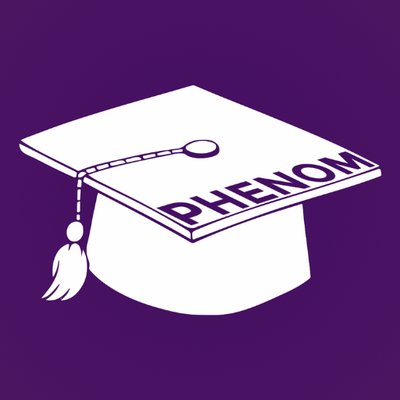Welcome back to The PHENOM Update, our official monthly newsletter where we keep you updated on recent goings on in our campaigns and around the higher ed world!
Greenfield CC SGA unanimously approves pro-student edits to the CHERISH Act!
Great News! On Thursday, December 5th, the Greenfield Community College Student Government Association (SGA) unanimously passed a resolution supporting two key changes to the higher-ed bill the CHERISH Act to make it better serve students.
This follows the UMass-Amherst SGA’s landslide passage of the same resolution on October 30th. The CHERISH Act is an omnibus bill that proposes a wide range of reforms to Massachusetts’ public colleges, most notably its proposal to guarantee debt-free college through a “last-dollar” scholarship (i.e., giving enough financial aid to students so they don’t have to go in debt).
The first improvement to CHERISH this resolution proposes is having better student representation. It does this by recommending student representatives on CHERISH’s commissions be elected by students themselves (through student advisory committees). To see what happens when the government does not include student voices, look no further than the decades-in-the-making crippling student debt crisis ravaging the Commonwealth.
The second key improvement to CHERISH this resolution proposes is the replacement of its “last-dollar” debt-free college aid model with a more effective “first-dollar” model. This is because “last-dollar” financial aid programs have the design flaw of awarding students aid only after students report all other aid, they end up giving students aid months too late for it to help.
The president of GCC’s SGA Michael Hannigan praised the resolution for strengthening our economy and democracy. “Free community college in Massachusetts has created opportunities for first-generation students like myself, who have often been left out of traditional educational systems,” he said.
“Making a college education accessible to people across the socioeconomic spectrum strengthens our economy and supports the future of our democracy. Extending free college to four-year institutions would be a smart investment in our collective future.”
UMass-Amherst PHENOM co-hosts teach-in on Massachusetts’ legislative process
On Thursday, December 5th, PHENOM’s UMass-Amherst chapter and Sunrise Movement’s UMass chapter co-hosted a teach-in on the nitty gritty of Massachusetts’ legislative process and how to work with politicians to win change through bills, ballot initiatives, influencing the budget and even constitutional amendments.
In addition, presenters from both PHENOM and Sunrise took a look at the often-confusing – and very long – timelines of everything from the budget process to public hearings crucial for influencing legislators. We are looking forward to doing another version of this event in the beginning of 2025 to give even more passionate individuals the tools they need to make their ideas a reality through organizing. Thank you to everyone who attended!
Stay in the loop and follow us on Instagram!
As we work to rally students and faculty across the state to fight for more affordable, fairer higher education, social media is the go-to way to keep our allies and communities up to date. Check out our official statewide Instagram page @massphenom, as well as our chapter pages @umassaphenom and @dartmouth_phenom!
In Other News
Why the Fair Share Amendment gives us hope
PHENOM’s own Communications Chair Liam Rue (shameless plug, I know) reflects on the inspiring lessons we can take from the long, hard, and ultimately successful fight to pass the Fair Share Amendment (a.k.a. The Millionaire’s Tax).
At a time when many of us are struggling to stay motivated about the future, Rue argues that the successful campaign of the Fair Share Amendment shows that long-term planning, coalition-building and a compelling message (not to mention grit) are all you need to win the changes you want, piece by piece.
The fight to pass the Fair Share Amendment was by no means easy, especially since it took over a decade before it finally passed in 2022. But the fact a tax on millionaires did eventually become a reality hints at how much more is possible in the years to come if we only keep fighting.
But that also requires being laser-focused on exactly what we want to achieve, finding the right allies to work with, and figuring out the best method of getting it passed (in this case a ballot initiative and a constitutional amendment).
Just as inspiring are all of the recent fruits of this game-changing bill: as Rue writes, “What if I told you that free school lunch at all public schools, free community college, and massive improvements to public transportation across Massachusetts were all made possible by just one tax? That Tax has a name, and it’s called the Fair Share Amendment (a.k.a. the Millionaire’s Tax).”
National college completion rate ticks up to 61.1%, helped by progress in CCs
According to the latest data from the National Student Clearinghouse Research Center, students in community colleges experienced a promising increase in college completion rates in 2024, which have buoyed college completion rates at the national level.
While this cohort of students still struggles to complete college at similar rates to those of four-year institutions – likely owing partly to systemic underinvestment in community colleges as well as in the communities they serve – this is encouraging news.
It will be interesting to see how Massachusetts’ latest policy of tuition-free community college affects the rates of community college completion within the state now that they have become much more accessible.
On the other hand, the data from the Research Center has the more worrying finding of a drop among 18-year old first-year students, a.k.a. students enrolling right out of high school.
A key factor in this could be the unrelenting problems with this year’s FAFSA form, which has needlessly made it harder for students across the country to get the financial aid they need. In turn, observers have widely predicted that it would decrease enrollment because of these financial hurdles it has created for countless students.
